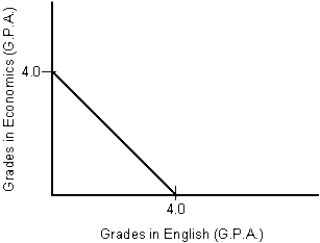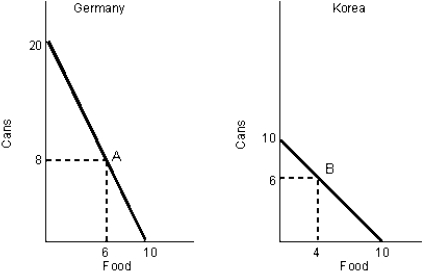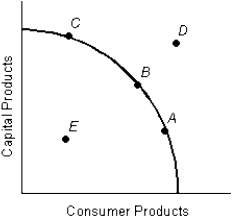A) is Ronnie's best alternative use of the $28.
B) is Ronnie's best alternative use of the one hour it took to wait in line.
C) is the value of the $28 to the ticket agent.
D) is Ronnie's best alternative use of both the $28 and the one hour spent in line.
E) cannot be measured because there is no opportunity cost associated with consumption.
Correct Answer

verified
Correct Answer
verified
Multiple Choice
Which of the following statements is false?
A) Economists look at the factors that lead an individual to decide that a particular idea is in his or her best interest.
B) Economists do not ask whether a particular decision is in the individual's best interest.
C) Choices must be made because of scarcity.
D) A particular choice is made because that choice provides the individual making the choice with the greatest satisfaction.
E) None of these statements is false-they are all true.
Correct Answer

verified
Correct Answer
verified
Multiple Choice
Scenario 1.1 Alan and Brian work at a baseball and softball manufacturing plant. Alan can produce either 10 baseballs or 4 softballs in an hour. Brian can produce either 8 baseballs or 2 softballs in an hour. -According to Scenario 1.1, the opportunity cost for Alan to produce 1 baseball is
A) 1/4 softball.
B) 2/5 softball.
C) less than the opportunity cost of Brian to produce 1 baseball.
D) 2 1/2 softballs.
E) 4 softballs.
Correct Answer

verified
Correct Answer
verified
Multiple Choice
Figure 1.2
 -The PPC in Figure 1.2 indicates a student who
-The PPC in Figure 1.2 indicates a student who
A) is better at economics than English.
B) is better at English than economics.
C) is equally proficient in economics and English.
D) prefers economics over English.
E) prefers English over economics.
Correct Answer

verified
Correct Answer
verified
Multiple Choice
Oil found underground in Texas is an example of
A) a labor resource.
B) land or a natural resource.
C) an entrepreneur.
D) human capital.
E) a capital resource.
Correct Answer

verified
Correct Answer
verified
True/False
The total cost of attending college is the sum of the cost of tuition, books, housing, and meals.
Correct Answer

verified
Correct Answer
verified
Multiple Choice
Figure 1.1
 -Suppose that points A and B in Figure 1.1 represent pre-trade positions. If each country specializes according to comparative advantage, what are the potential gains to trade?
-Suppose that points A and B in Figure 1.1 represent pre-trade positions. If each country specializes according to comparative advantage, what are the potential gains to trade?
A) 6 cars
B) 6 cars and 6 units of food
C) 6 units of food
D) 4 units of food
E) 12 cars
Correct Answer

verified
Correct Answer
verified
Multiple Choice
 -According to the data in Table 1.1, the opportunity cost of chili in Ohio is
-According to the data in Table 1.1, the opportunity cost of chili in Ohio is
A) the same as in Iowa.
B) 1/4 cookie.
C) 4 cookies.
D) 1/8 cookie.
E) 8 cookies.
Correct Answer

verified
Correct Answer
verified
Multiple Choice
It can be said that ____ laid the foundation for the Industrial Revolution.
A) the discovery of the Americas
B) private property rights
C) the invention of the cotton gin
D) the discovery of gold
E) the development of a strong judicial system
Correct Answer

verified
Correct Answer
verified
True/False
Diamonds are more expensive than water because diamonds are a necessity of life.
Correct Answer

verified
Correct Answer
verified
Multiple Choice
Figure 1.3
 -In Figure 1.3, underutilization of resources is represented by point
-In Figure 1.3, underutilization of resources is represented by point
A) A.
B) B.
C) C.
D) D.
E) E.
Correct Answer

verified
Correct Answer
verified
Multiple Choice
Economics is
A) concerned with the problem of scarce resources combined with unlimited wants.
B) the study of how to make money in the stock market.
C) highly theoretical and has little practical application.
D) primarily concerned with day-to-day business decision making.
E) a decision making process involving individuals and firms rather than governments.
Correct Answer

verified
Correct Answer
verified
Multiple Choice
According to the text, why are some countries rich and others very poor?
A) Some countries have no oil.
B) People have no property rights.
C) Access to education is very limited.
D) High tariffs prevent international trade.
E) All of these.
Correct Answer

verified
Correct Answer
verified
Multiple Choice
 -According to Table 1.3, the opportunity cost of producing 1 gallon of grape juice in Maine is
-According to Table 1.3, the opportunity cost of producing 1 gallon of grape juice in Maine is
A) 5 gallons of apple juice.
B) 1/5 gallon of apple juice.
C) 5 gallons of grape juice.
D) 6 gallons of apple juice.
E) 1/8 gallon of apple juice.
Correct Answer

verified
Correct Answer
verified
Multiple Choice
Which of the following is a reason to study economics?
A) Economic analysis explains daily events.
B) It helps us understand why people, firms and government behave in a certain way.
C) We need to understand relevant economic applications and policy issues.
D) It provides useful logic for solving complex problems.
E) All of these
Correct Answer

verified
Correct Answer
verified
True/False
The opportunity cost of going to the movies is always the same for everyone.
Correct Answer

verified
Correct Answer
verified
Multiple Choice
Figure 1.2
 -The production possibilities curve illustrates
-The production possibilities curve illustrates
A) the tradeoffs facing a society.
B) that more of one product can be produced only by reducing the quantity of other products that are being produced, assuming that resources are being used efficiently.
C) the maximum output that can be produced with a limited amount of resources.
D) the opportunity cost of alternative choices.
E) all of these.
Correct Answer

verified
Correct Answer
verified
True/False
Because of scarcity, we attempt to utilize our resources as efficiently as possible.
Correct Answer

verified
Correct Answer
verified
Multiple Choice
 -According to the data in Table 1.1, if trade were to occur, what would be the most Ohio would be willing to pay for 1 chili?
-According to the data in Table 1.1, if trade were to occur, what would be the most Ohio would be willing to pay for 1 chili?
A) 4 cookies
B) 8 cookies
C) 1/4 of a cookie
D) 1/8 of a cookie
E) 6 cookies
Correct Answer

verified
Correct Answer
verified
Multiple Choice
An economy's resources
A) are limited in quantity.
B) are always efficiently utilized.
C) consist of land, labor, capital, and money.
D) are unrelated to its standard of living.
E) are unlimited when we use the latest technology.
Correct Answer

verified
Correct Answer
verified
Showing 21 - 40 of 110
Related Exams